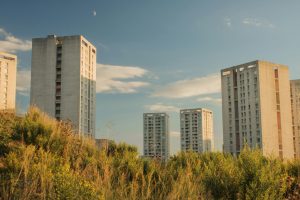What Growing Cities Are Doing to Combat Real Estate Speculation
As cities across the world continue to expand and grow, one issue that is becoming increasingly prevalent is real estate speculation. This occurs when investors purchase properties in hopes of turning a profit, often at the expense of local residents and communities. Not only does this drive up housing prices and create an unstable market, but it also contributes to social and economic disparities. However, many growing cities are taking proactive measures to combat this issue and create a more equitable housing market. In this article, we will explore what these cities are doing to tackle real estate speculation and create more livable and inclusive communities.
Creating Affordable Housing Programs
One of the most effective ways that growing cities are combatting real estate speculation is by implementing affordable housing programs. In cities like New York and Seattle, inclusionary zoning laws have been passed, requiring developers to include a certain percentage of affordable housing units in new developments. This not only creates more affordable options for residents, but it also helps to mitigate the effects of speculation by making it more difficult for investors to solely purchase properties for profit.
In addition, cities like Vancouver, Canada, have implemented vacant home taxes as a way to discourage investors from purchasing properties and leaving them unoccupied. This tactic has been successful in increasing the number of available housing units and reducing speculation, while also generating revenue for affordable housing initiatives.
Encouraging Community and Resident Participation
In many growing cities, real estate speculation is driven by foreign investors looking to park their money in safe assets. This can lead to entire neighborhoods being bought up and left vacant, causing significant social and economic issues for local residents. To combat this, cities like Berlin, Germany, have implemented a ban on foreign investors purchasing residential properties. This has not only helped to prevent speculation, but it also encourages community and resident participation in the housing market.
Other cities, such as Barcelona, Spain, have implemented “right of first purchase” laws, giving local residents and community organizations the opportunity to purchase properties before they go on the open market. This not only helps to keep properties out of the hands of speculators, but it also allows for more community-driven development and affordable housing initiatives.
Regulating Short-Term Rentals
With the rise of platforms like Airbnb, short-term rentals have become a favored tactic for real estate speculation. Investors purchase properties specifically for short-term rentals, taking them off the long-term rental market and driving up prices for residents. To combat this, cities like Amsterdam, Netherlands, have implemented strict regulations on short-term rentals, limiting the number of days a property can be rented out and requiring permits for each rental. This helps to keep properties available for long-term residents and prevents investors from turning a profit at the expense of local residents.
Investing in Community Development
In addition to these measures, many growing cities are also investing in community development programs in order to create more equitable and inclusive neighborhoods. This includes initiatives such as building new affordable housing units, improving public transportation, and creating community spaces. By prioritizing the needs of residents and investing in community development, cities can create a more balanced and sustainable housing market, making it less susceptible to real estate speculation.
Conclusion
Real estate speculation is a complex issue that has significant impacts on the social and economic fabric of growing cities. However, by implementing proactive measures such as affordable housing programs, community and resident participation, regulating short-term rentals, and investing in community development, cities can combat this issue and create more livable and inclusive communities. It is crucial for cities to prioritize the needs of their residents and work towards creating a more equitable and sustainable housing market for all.










